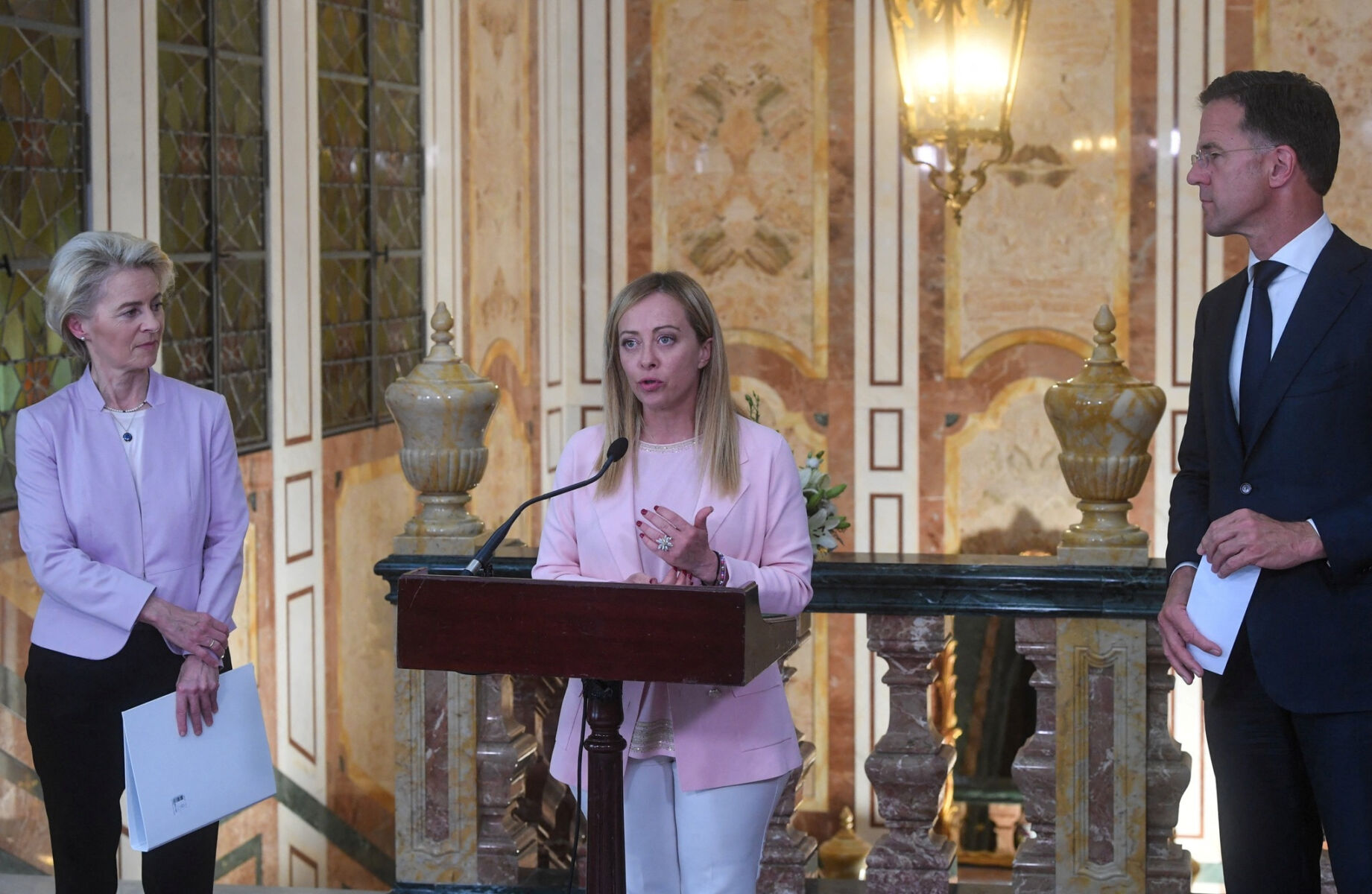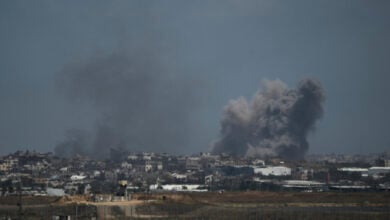EU mulls €1bn Tunisia loan to tackle economy and refugee influx

The European Union is considering a loan of over 1 billion euros to Tunisia, with the majority designated as “macro-financial assistance” aimed at rescuing the nation’s struggling economy. European Commission President Ursula von der Leyen announced the potential package during her visit to Tunisia, accompanied by Italian Prime Minister Giorgia Meloni and Dutch Prime Minister Mark Rutte. The EU’s efforts are part of a larger plan to curb the influx of refugees, primarily from sub-Saharan African countries, attempting to reach Italy’s shores.
The proposed aid package comprises 900 million euros in macro-financial assistance for Tunisia’s state finances, along with an immediate 150 million euros to back a reform agenda set by the International Monetary Fund (IMF). Additionally, the EU has offered 105 million euros for border management, search and rescue operations, and anti-smuggling initiatives.
Tunisia has been grappling with economic stagnation for over a decade since the 2011 revolt that toppled long-time ruler Zine El Abidine Ben Ali. The financial crisis has been marked by chronic shortages of essential food items. In May, inflation reached 10%, while unemployment rose to 16.1% in the first quarter, compared to 15.2% in the previous quarter. Tunisia’s debt is estimated at about 80% of its GDP.
In October, Tunisia agreed in principle to nearly US$2 billion in assistance from the IMF, but negotiations have since stalled. The IMF has urged for legislation to restructure over 100 state-owned firms, many of which hold monopolies in various sectors and are heavily indebted. However, President Kais Saied has rejected the IMF’s “diktats” and suggested taxing the wealthiest citizens instead. Meloni has urged the IMF to ease the loan conditions.
The EU, particularly Italy, is keen on the deal as it seeks to reduce the number of people fleeing conflict and poverty in Africa and the Middle East in hopes of finding safety and a future in Europe. According to the EU border agency Frontex, there has been a 292% increase in attempted crossings from Tunisia compared to last year. Italy is the primary destination for most departures from Tunisia, and blocking this route has been a priority for the country’s far-right leader.
Over recent months, the Tunisian coastguard has reported an unprecedented number of refugee bodies washing up on the country’s shores. Last week, nine bodies were recovered, and 29 people were rescued after their boats sank off the coastal city of Monastir while attempting to reach Italy. In March, 29 people died trying to cross to Italy from Sfax, a major departure point for refugees on the Tunisian coast. In April, the coastguard reported that 210 bodies had washed up on Tunisia’s coastline in under two weeks. The majority of these asylum seekers come from sub-Saharan Africa.
President Saied has recently fueled anti-foreigner sentiment in Tunisia. In a February speech, he urged security forces to take action against people from sub-Saharan Africa, claiming they threatened to “change the demographic make-up” of Tunisia and turn it into “just another African country that doesn’t belong to the Arab and Islamic nations any more.” Following his speech, police detained hundreds of people in a large-scale crackdown, and racist attacks increased dramatically across the country.








